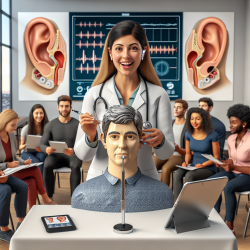Introduction
The 21st century presents unprecedented challenges and opportunities in global health. As practitioners, we are at the forefront of transforming health education and practice to address these challenges effectively. The editorial "Transforming Global Health, Global Health Education, Infectious Disease, and Chronic Conditions in the 21st Century" by Anvar Velji provides critical insights into the evolving landscape of global health. This blog explores how practitioners can leverage these insights to enhance their skills and contribute to global health improvements.
Key Insights from the Editorial
Velji's editorial highlights the need for integrated, efficient, and equitable health systems that encompass primary, secondary, and tertiary care models. The focus is on building robust health systems, capacity building, and education, particularly in developing countries. Practitioners are encouraged to adopt interdisciplinary approaches, collaborate across sectors, and advocate for social justice and equity in health care.
Implementing Transformational Strategies
Practitioners can improve their skills and impact by implementing the following strategies:
- Engage in Continuous Learning: Stay informed about global health trends and advancements through conferences, publications, and webinars. This knowledge will empower you to implement evidence-based practices in your work.
- Advocate for Health Equity: Embrace the values of equity, rights, fairness, justice, and solidarity in your practice. Advocate for policies that address social determinants of health and promote equitable access to care.
- Collaborate Across Disciplines: Work with professionals from various fields to develop comprehensive solutions to complex health challenges. Interdisciplinary collaboration is key to addressing the multifaceted nature of global health issues.
- Focus on Capacity Building: Contribute to building the capacity of health systems by sharing knowledge, mentoring peers, and participating in training programs. This will strengthen health systems and improve care delivery.
Encouraging Further Research
Practitioners are encouraged to delve deeper into the research presented in Velji's editorial. By engaging in further research, you can contribute to the development of innovative solutions to global health challenges. Consider exploring areas such as:
- Health System Strengthening: Investigate ways to improve health system efficiency and equity, particularly in resource-limited settings.
- Infectious Disease Control: Research strategies for preventing and managing infectious diseases, with a focus on emerging and neglected diseases.
- Chronic Disease Management: Explore interventions for managing chronic conditions and reducing their impact on global health.
Conclusion
As practitioners, we have a responsibility to contribute to the transformation of global health. By implementing the insights from Velji's editorial and engaging in further research, we can enhance our skills and make a meaningful impact on global health outcomes. Together, we can work towards a safer, more equitable, and healthier future for all.
To read the original research paper, please follow this link: Editorial: Transforming Global Health, Global Health Education, Infectious Disease, and Chronic Conditions in the 21st Century.










